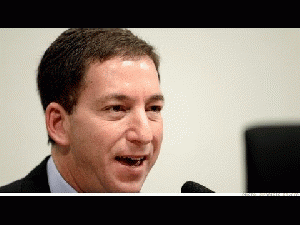In 2006, Charlie Savage won the Pulitzer Prize for his series of articles in The Boston Globe exposing the Bush administration's use of "signing statements" as a means of ignoring the law. In response to those revelations, Michael Kinsley -- who has been kicking around Washington journalism for decades as the consummate establishment "liberal" insider -- wrote a Washington Post op-ed defending the Bush practice ("nailing Bush simply for stating his views on a constitutional issue, without even asking whether those views are right or wrong, is wrong") and mocking concerns over it as overblown ("Sneaky! ... The Globe does not report what it thinks a president ought to do when called upon to enforce or obey a law he or she believes to be unconstitutional. It's not an easy question").
Far more notable was Kinsley's suggestion that it was journalists themselves -- not Bush -- who might be the actual criminals, due both to their refusal to reveal their sources when ordered to do so and their willingness to publish information without the permission of the government:
"It's wrong especially when contrasted with another current fever running through the nation's editorial pages: the ongoing issue of leaks and anonymous sources. Many in the media believe that the Constitution contains a 'reporter's privilege' to protect the identity of sources in circumstances, such as a criminal trial, in which citizens ordinarily can be compelled to produce information or go to jail. The Supreme Court and lower courts have ruled and ruled again that there is no such privilege. And it certainly is not obvious that the First Amendment, which seems to be about the right to speak, actually protects a right not to speak. ...
"Why must the president obey constitutional interpretations he disagrees with if journalists don't have to?
"Last Sunday, same day as the Globe piece, The New York Times had a front-page article about the other shoe waiting to drop in these leak cases. The Bush administration may go beyond forcing journalists to testify about the sources of leaks. It may start to prosecute journalists themselves as recipients of illegal leaks. As with the Globe story, this turns out to be a matter of pugnacious noises by the Bush administration. Actual prosecutions of journalists for receiving or publishing leaks are 'unknown,' the Times article concedes. But this could change at any moment.
"Well, maybe. And maybe journalists are right in their sincere belief that the Constitution should protect them in such a case. But who wants to live in a society where every citizen and government official feels free to act according to his or her own personal interpretation of the Constitution, even after the Supreme Court has specifically said that this interpretation is wrong? President Bush would actually top my list of people I don't want wandering through the text and getting fancy ideas. But why should he stay out of the 'I say what's constitutional around here' game if his tormentors in the media are playing it?"
This is the person whom Pamela Paul, editor of The New York Times Book Review, chose to review my book, No Place to Hide, about the NSA reporting we've done and the leaks of Edward Snowden: someone who has expressly suggested that journalists should be treated as criminals for publishing information the government does not want published. And, in a totally unpredictable development, Kinsley then used the opportunity to announce his contempt for me, for the NSA reporting I've done, and, in passing, for the book he was ostensibly reviewing.
Kinsley has actually done the book a great favor by providing a vivid example of so many of its central claims. For instance, I describe in the book the process whereby the government and its media defenders reflexively demonize the personality of anyone who brings unwanted disclosure so as to distract from and discredit the substance revelations; Kinsley dutifully tells Times readers that I "come across as so unpleasant" and that I'm a "self-righteous sourpuss" (yes, he actually wrote that). I also describe in the book how jingoistic media courtiers attack anyone who voices any fundamental critiques of American political culture; Kinsley spends much of his review deriding the notion that there could possibly be anything anti-democratic or oppressive about the United States of America.
But by far the most remarkable part of the review is that Kinsley -- in the very newspaper that published Daniel Ellsberg's Pentagon Papers and then fought the Supreme Court for the right to do so (and, though the review doesn't mention it, also published some Snowden documents) -- expressly argues that journalists should only publish that which the government permits them to, and that failure to obey these instructions should be a crime (emphasis mine):
"The question is who decides. It seems clear, at least to me, that the private companies that own newspapers, and their employees, should not have the final say over the release of government secrets, and a free pass to make them public with no legal consequences. In a democracy (which, pace Greenwald, we still are), that decision must ultimately be made by the government. No doubt the government will usually be overprotective of its secrets, and so the process of decision-making -- whatever it turns out to be -- should openly tilt in favor of publication with minimal delay. But ultimately you can't square this circle. Someone gets to decide, and that someone cannot be Glenn Greenwald.
"Greenwald's notion of what constitutes suppression of dissent by the established media is an invitation to appear on 'Meet the Press.' On the show, he is shocked to be asked by the host David Gregory, 'To the extent that you have aided and abetted Snowden...why shouldn't you, Mr. Greenwald, be charged with a crime?' Greenwald was so stunned that 'it took a minute to process that he had actually asked' such a patently outrageous question.
"And what was so outrageous? ... As the news media struggles to expose government secrets and the government struggles to keep them secret, there is no invisible hand to assure that the right balance is struck. So what do we do about leaks of government information? Lock up the perpetrators or give them the Pulitzer Prize? (The Pulitzer people chose the second option.) This is not a straightforward or easy question. But I can't see how we can have a policy that authorizes newspapers and reporters to chase down and publish any national security leaks they can find. This isn't Easter and these are not eggs."
Let's repeat that: The New York Times just published a review of No Place to Hide that expressly argues on the question of what should and should not get reported "that decision must ultimately be made by the government." Moreover, those who do that reporting against the government's wishes are not journalists but "perpetrators," and whether they should be imprisoned "is not a straightforward or easy question."






